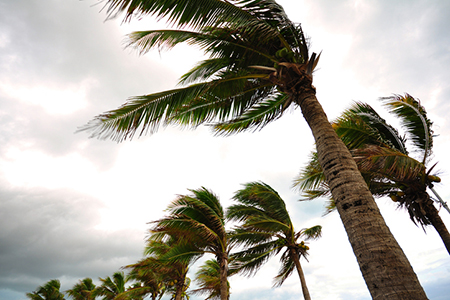Editor’s Note: This was originally published on RISMedia’s blog, Housecall. See what else is cookin’ now at blog.rismedia.com:
- Buying a Home? Factor These Into Your Interest Rate Calculations
- Spotlight: Does realtor.com Really Care About REALTORS®?
- 5 Spooky Seats to Recline on This Halloween
While the immediate danger is gone and hurricane season is winding down, individuals in the affected areas are still working through a recovering market. Most residents of hurricane-prone areas expect storms to hit, but the buyer and seller population may not be familiar with the ramifications of a hurricane that disrupts a real estate transaction.
Here’s what Orlando Regional REALTOR® Association President-Elect Lou Nimkoff and RE/MAX 200 Orlando-based REALTOR® Daniel Wilson have to say about navigating the real estate market during hurricane season:
Trust your gut.
Unfortunately, you may come across individuals that try to take advantage of vulnerable homeowners. Following a natural disaster, service “professionals” who are not qualified to perform a job may try to overcharge for a service claiming an increase in demand. If not careful, you can wind up with a botched repair that costs you thousands of dollars.
“My No. 1 piece of advice to buyers and sellers post-hurricanes is to be aware of everyone that you’re dealing with and make sure that they’re a trusted name in their industry. During times of distress, a lot of companies try and profit from those in need. For example, make sure the roofer that comes to your door knocking for business is an actual licensed and insured roofer. Better yet, look up the business and find their customer reviews online,” says Wilson.
“You need to have a home inspector take a look and make sure any work you had done was done properly,” says Nimkoff.
Have patience.
The market was hit hard and it will take time for everything to settle down. Not all homes are back on the market after sustaining damage during the hurricanes. In a few more weeks, you could be seeing more activity; however, if you do see something you like, it will most likely sell quickly since inventory is low. If a home fits the bill, jump on it before another buyer comes along and claims it.
“I advise buyers to act on the same day the homes get listed if they’re interested, otherwise they will have a very difficult time in getting their offer accepted once there’s been a multiple offer situation. My theory is: the first agent in the door—with the best offer and continued communication with the other agent—wins!” says Wilson.
“Because it is a seller’s market and there is an unusually high number of sellers, buyers want to be able to try and attract them and negotiate with them quickly,” says Nimkoff.
Get back on the market.
If your home was damaged by the hurricanes and you are trying to sell, fix any issues as quickly as possible so you can get your home back on the market. If your home only sustained minor damage, fix any issues without withdrawing your listing. Time off the market can translate into offers that you could be missing out on. Buyers will start to come out of the woodwork after laying low in the weeks following the hurricanes.
“I have a current seller who needed to have a new roof put on because of the hurricane. We went under contract with a buyer, got insurance to approve the new roof and scheduled a professional to place the new roof on the home—all while still on track with the original closing date of just 30 days from contract to close,” says Wilson.
“You need to make sure that your insurance values are up-to-date. If you do have a loss, you can quickly have it repaired and you don’t have to get into a fight with the insurance company. If you suffered some sort of loss, you need to repair it quickly and properly,” says Nimkoff.
Be flexible and keep the end goal in mind.
Do remember that hurricane season can be stressful. Emotions are high for both buyers and sellers. Work together to achieve your goal while avoiding the drama.
“If you’re going to buy a house during hurricane season, talk to your landlord and say, ‘I need an extra month if I can’t move into my new house.’ Or if you’re selling your home, you have the right to delay the home you are selling so you can work out the issue because of a pending hurricane,” says Nimkoff
“It’s an awfully tight market. A thousand people a day are moving in here. Don’t get too focused that you forget about the long-term benefits. We have pretty low interest rates right now,” he adds.
Liz Dominguez is RISMedia’s associate content editor. Email her your real estate news ideas at ldominguez@rismedia.com.
For the latest real estate news and trends, bookmark RISMedia.com.











